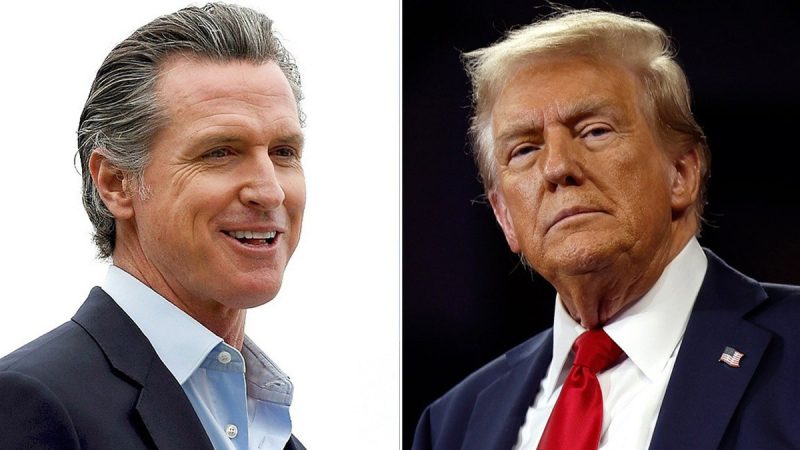In response to President Trump’s proposed 25% tariff on imported goods from Mexico, Governor Gavin Newsom of California strongly criticized the move during his visit to the southern border, deeming it a betrayal of American values and economic well-being.
Newsom, known for his progressive stance on immigration and trade policies, argued that imposing such hefty tariffs would not only hurt the Mexican economy but also have dire consequences for American businesses and consumers. He pointed out that these tariffs would likely lead to increased prices for a wide range of goods, from electronics to automobiles, which would ultimately burden the average American household.
The governor emphasized the interconnectedness of the two economies, highlighting how many American companies rely on supply chains that include Mexican-produced components. Newsom warned that disrupting these supply chains through tariffs would disrupt businesses across various sectors, potentially leading to job losses and economic instability.
Furthermore, Newsom criticized Trump’s approach to handling international relations, stating that the tariff plan was just one in a series of ill-conceived policies that risk damaging key diplomatic relationships. He argued that such unilateral actions undermine the trust and cooperation necessary for addressing complex global issues like immigration and security.
Newsom’s remarks reflect a broader trend of opposition to protectionist trade policies that have characterized the Trump administration’s approach to international trade. Many lawmakers, economists, and industry leaders have voiced concerns about the negative impact of tariffs on economic growth and stability, calling instead for constructive dialogue and negotiation to address trade imbalances and other issues.
As the debate over tariffs and trade policy continues to unfold, Governor Newsom’s vocal opposition serves as a reminder of the importance of thoughtful and informed decision-making in shaping economic policy. By emphasizing the interconnectedness of global economies and the potential risks of unilateral actions, Newsom has positioned himself as a key voice in the ongoing dialogue about the future of American trade relations.

